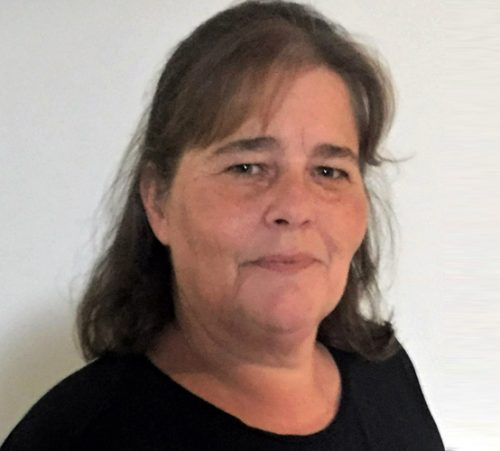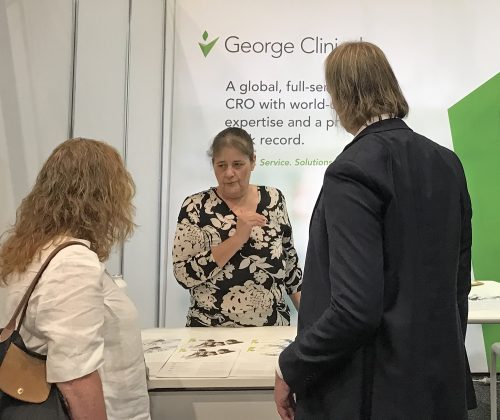Nothing defines the unique character of George Clinical more than the people who do the important work of researching treatments and clinical practices that will shape medical policies and practices in every corner of the world. While our Scientific Leadership Team members are a diverse group from many countries and therapeutic areas, one thing they all share is a passion for making an impact on the treatment, and thus the lives, of the patients they serve. These are their stories.

Gillian Ryan is Global Head of Early Phase at George Clinical. She has over 20 years of clinical research experience across all phases of global and local research activities including specializing in the operational conduct of Phase I studies in healthy volunteer and patient populations. Gillian has proven skills in managing and overseeing the conduct of niche and complex studies across all phases and involving multiple sites and countries to ensure study delivery within scope, timelines and budget.
As a younger person I became aware in my personal life of the impact of disease and the issues that it causes—from the simplest inconvenience to fatal outcomes. And as a teenager I was actually moved by the Live Aid Concert—musicians that I admired were coming together to do something—making an effort to get vital help to millions of people starving and dying in Ethiopia. The concept of “making a difference” made a strong impression. And it’s been the driver behind my career path ever since.
In a way, I fell into clinical research when, working as a nurse, I decided to further my academic career and needing a “set schedule” job went to work in an outpatient clinical center where I was assigned to the chemo day unit. One of the oncologists wanted to give the patients the option of clinical trials and needed assistance. I started out as a study coordinator, but once I was exposed to the nuances of the process, I knew that’s what I wanted to do. I “crossed the fence” from nursing and started working in a CRO in Sydney as a CRA and eventually was fortunate to be assigned to Phase I trials—the first time that a new drug is being administered to a patient since tested in the pre-clinical space. I found it fascinating and set my path in that direction.
Early Phase clinical research is fascinating because it’s the cutting edge of medicine. And it’s an exposure to the brilliance of scientific minds—to ideas that are revolutionizing healthcare. In my progression from CRA to Global Head of Early Phase at George Clinical, I have had the fortuitous experience to work in trials that have literally changed global treatment standards. Two drugs specifically that I have worked on have become blockbuster game changers. We are making inroads into a wide variety of diseases—but why a passion for Early Phase? Because we haven’t done enough. Because there is so much more to be done, and Early Phase trials are the place where it all begins.

Early Phase studies by nature are fast paced and safety driven. They require an understanding of drug development, a lot of on-your-feet thinking and the ability to be adaptable and flexible. The success of an Early Phase trial is based on nimble thinking. What you think via protocol at the beginning of the study is purely an unknown because this is the first time these drugs are administered in humans. You essentially don’t know what that drug is going to do, so your ability to adapt is critical. What we originally thought is not always how we think at the end. As the study evolves, it is critical to be versatile, nimble and open to alternate ways of thinking—all within the highest regulations and standards of safety. The risk management processes in place must be strict and strong. What is done in these studies will determine the future of that drug’s development, so it’s critical to get it right at every stage.
George Clinical has a unique offering from other CROs in its use of the Scientific Leadership model. This model is based on the engagement of key opinion leaders and experts in their field who partner with us and with our sponsors and sites in the successful delivery of a study. They are working with a singular goal — the drive to introduce new medicines with the potential of treating multiple conditions and diseases across the globe. That’s what differentiates George Clinical from other CROs. The work that we do is based on strong scientific rationale and expertise in the specific therapeutic field where we are working. We are not limited to process-driven solutions or requirements as are typical of other companies in the industry. That uniqueness of the Scientific Leadership in supporting what we do aligned with the ability to be adaptable, nimble and flexible is why George Clinical is the right place for me and also for Early Phase studies.
For me it’s passion. I hope that my passion in the work will inspire and motivate those around me. I know that working with others who are all in the same mind and truly passionate about making a difference is personally inspiring. The nature of Early Phase trials really requires self-motivation to move forward through experience and knowledge. This work naturally attracts people who are driven to do the work that can fundamentally change the course of millions of lives around the world. That is a very motivating goal that we all share with one another.
That we keep doing what we keep doing. That we continue to open doors and push boundaries. We are nowhere near the “holy grail” of medicine. We have to keep developing therapies in search of better, more effective, less risky treatments. We conduct our studies with the highest standards of patient protection, and with their gracious participation we are opening the doors to new opportunities to get better therapies earlier and quicker to more patients with more diseases. My hope is that we just keep pushing.
Well, I like a good game of AFL (Australian Football League) and I actively support the Sydney Swans. I love taking my rescue dog to the beach and watching her run in the surf with no one else around where I can let my mind wander into a million different things. And my gardening efforts continue to fascinate—how plants can succeed in the absence of any attention of care and how they seem to do things that they shouldn’t—like a mandarin tree that’s producing lemons. But most of all, it’s quiet time.
ASN Kidney Week 2023: Signaling the Onset of a New Golden Age for Kidney Disease Clinical Trials